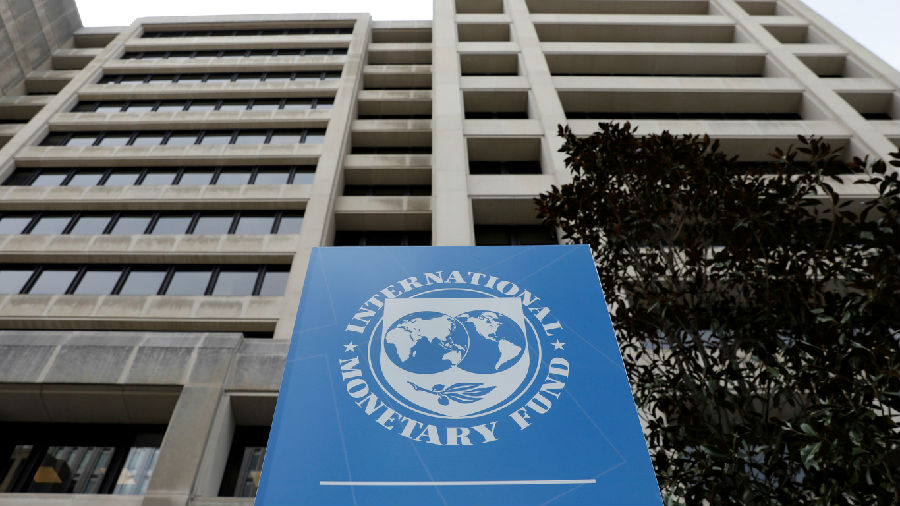来源于《社论》版块
The IMF
国际货币基金组织
Break the glass
击破玻璃
Emerging markets are in turmoil. The IMF must step in to help
新兴市场一片混乱。国际货币基金组织必须介入帮助
Emerging markets are battling a financial crisis as well as a public-health emergency. Since late January foreign investors, desperate to shed risk, have been withdrawing their cash from poor countries. At the same time falling global trade, depressed commodities prices and vanishing tourists have put export revenues, and hence the supply of foreign currency, into free fall. This has left many countries struggling to pay for imports and to service their dollar-denominated debts, let alone fund emergency health or economic programmes. Over 90 countries have approached the IMF, the lender of last resort for governments, to ask for help.
新兴市场正在应对金融危机和突发公共卫生事件。自1月底以来,急于规避风险的外国投资者一直在从贫困国家撤出资金。与此同时,全球贸易下滑、大宗商品价格下跌和游客减少,导致出口收入以及外汇供应大幅下降。这使得许多国家难以支付进口和偿还以美元计价的债务,更不用说为紧急卫生或经济计划提供资金了。超过90个国家已经向政府的最后贷款人——国际货币基金组织寻求帮助。

The fund will need to respond on an unprecedented scale. The $96bn investors have already withdrawn from emerging-market stocks and bonds dwarfs past capital outflows, according to the Institute of International Finance, an industry group. So far this year the Brazilian real, the Mexican peso and the South African rand have lost nearly a quarter of their value against the dollar. Though few countries have sounded the alarm in public, the fund estimates that emerging markets will need at least $2.5trn over the course of the pandemic.
国际货币基金组织将需要以前所未有的规模做出反应。根据行业组织国际金融协会的数据,960亿美元的投资者已经从新兴市场股市和债市撤资,令过去的资本外流相形见绌。今年迄今为止,巴西雷亚尔、墨西哥比索和南非兰特兑美元汇率已下跌近四分之一。尽管很少有国家公开发出警告,但据国际货币基金组织估计,在这次疫情期间,新兴市场将需要至少2.5万亿美元。
Some of that help is coming from America’s Federal Reserve. It is running “swap lines” with a select few central banks, which have so far borrowed about $400bn while posting their own currencies as collateral. The Fed is also allowing most central banks to temporarily exchange any Treasuries that they hold for dollars. But among emerging-market central banks only Brazil, Mexico, Singapore and South Korea are included in the swap lines, and few poor countries have a ready supply of Treasuries. So most of the burden will fall on the IMF which, unlike the Fed, cannot create dollars at will. The fund says it has about $1trn on tap, about a fifth of which is already committed. Even this may not be enough for the job if large economies like Nigeria, South Africa or Turkey join the legions of small countries seeking help. Another problem is that a big chunk of the fund’s resources is borrowing from its members that must be reauthorised this year, creating uncertainty.
其中一些帮助来自美联储。美联储正在与少数几家央行进行“互换协议”,这些央行迄今已借入约4000亿美元,同时将本币作为抵押品。美联储还允许大多数央行暂时将持有的美国国债换成美元。但在新兴市场国家的央行中,只有巴西、墨西哥、新加坡和韩国被纳入了货币互换协议,而且几乎没有贫穷国家有现成的国债供应。因此,大部分负担将落在国际货币基金组织身上。与美联储不同,国际货币基金组织不能随意创造美元。国际货币基金组织表示,现有大约1万亿美元的资金可供随时使用,其中约五分之一已经到位。如果像尼日利亚、南非或土耳其这样的大型经济体加入到寻求帮助的小国大军中,那么这些资金可能还不够。还有一个问题是,国际货币基金组织的很大一部分资源都是从成员国那里借来的,而这些资金今年必须重新获得批准,从而产生了不确定性。
译文由可可原创,仅供学习交流使用,未经许可请勿转载。












